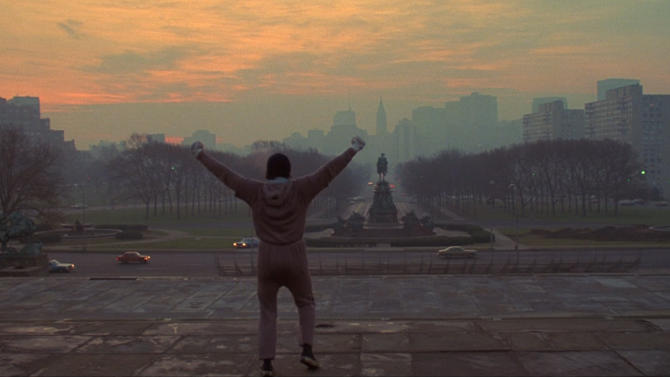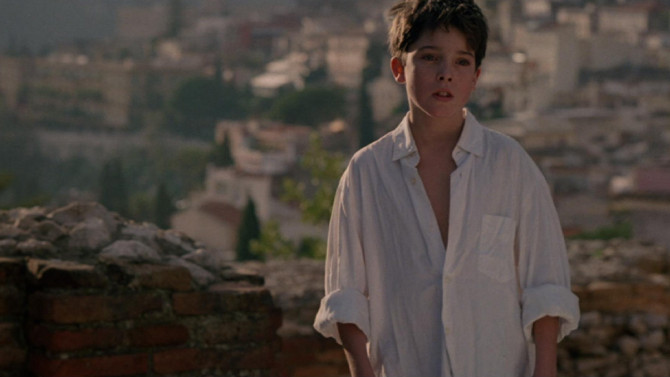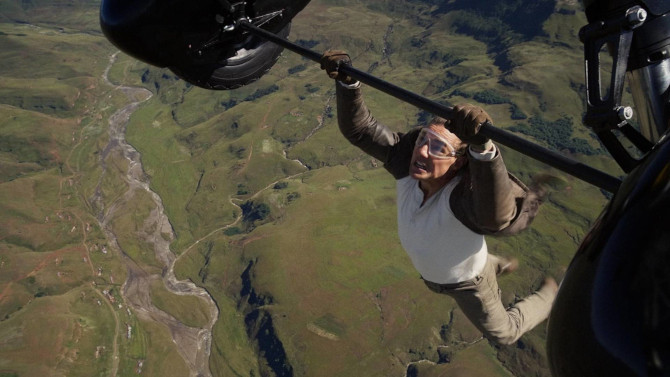
An Impossible Mission
How do you wrap up a franchise like Mission: Impossible? That is, if this even is the final installment... as they’ve made it sound (while at the same time, stars not named ‘Tom Cruise’ pipe up and suggest that might not be so). It has been twenty-nine years, with different writers and visionary directors – from twisty Brian De Palma and the action hair stylings of John Woo, to the lens flares of J.J. Abrams and animation expert Brad Bird, it was only about ten years ago that the franchise decided to opt for The Usual Suspects scribe Christopher McQuarrie for the final four. To return to that opening question once more, you could end with a Sopranos’ style cliffhanger, simply make another entertaining movie like the many before – like Everybody Loves Raymond did it with its final episode, or try to tie everything up in a neat little bow by bringing everything together as the Daniel Craig era did with James Bond. Well, it is definitely more along the lines of the latter example, with some distinct differences.
-
Star Pick with Doug MacLeod
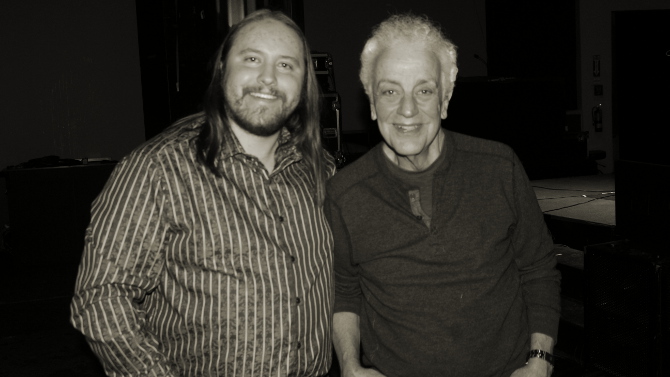 Beating the BluesRockyMarch 28, 2017
Beating the BluesRockyMarch 28, 2017Recently, I was fortunate enough to sit down with blues legend Doug MacLeod. A one man show, the acoustic maestro does it all while on stage; not only does he sing, play the guitar and stomp, but he also throws out important life lessons, tells jokes, and regales his audience with engaging stories – making him just as much a philosopher (see him live to learn of his bucket theory), storyteller, motivational speaker and stand-up comedian (though as the blues man quite cleverly pointed out, he is actually a sit-down comic – as he performs while seated). The winner of countless awards for his craft, the last few years should provide you with a good idea of his pedigree: in 2013, he took home Male Blues Artist of the Year at the Blues Blast Music Awards. Then in 2014, MacLeod won both Acoustic Artist and Acoustic Album of the Year at the Blues Music Awards, once again claiming the top prize of Acoustic Artist of the Year in 2016. This year, he has been honored with a nomination for his most recent album "Doug MacLeod – Live in Europe" – which is up for Best Historical Album, while also looking for a third win in the Acoustic Artist category. He has released an impressive 24 albums over the past thirty plus years.
-
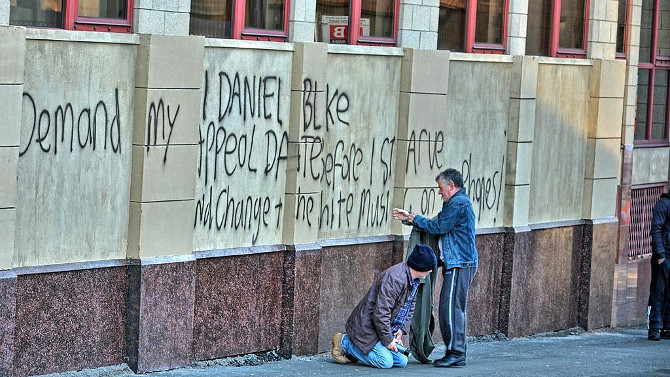
Another Brick in the Wall
I, Daniel BlakeMarch 26, 2017A trenchant piece of social commentary, I, Daniel Blake could have been a one dimensional film filled with gloomy despair, but in the capable hands of director Ken Loach and first time actor and long time comedian Dave Johns, it is laced with deft, dry, sarcastic humour throughout – making it a relevant, multi-faceted dramedy. Written by Paul Laverty (a regular collaborator with Loach), the modern day tale, which is set in Newcastle, England, follows a fifty-nine year old carpenter named Daniel Blake (Johns), who, as the film begins, is frustratingly dealing with a government employee over the phone. They have denied his claim for ‘employment and support allowance’ – despite the fact that he has had a debilitating heart attack and his doctors vehemently state that he is in no shape to return to work. A wonderful piece of sardonic humour, this opening scene finds the man having to put up with a plethora of unrelated questions that have nothing to do with his particular condition. Highlighting the lack of common sense or logic found in the modern day governmental system, it is somewhat akin to a man continuously banging his head around the rim of a toilet seat (it hurts, is irritating and, in the end, gets you absolutely nowhere).
-
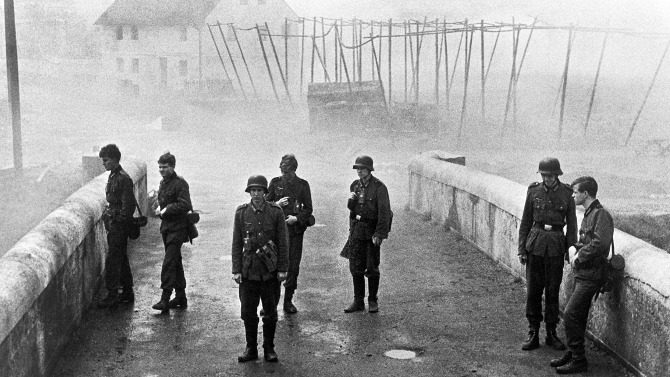
Bridge over Troubled Water
The BridgeMarch 24, 2017World War 2 films have long been an important staple of Hollywood movie making. Even from the early days of the conflict, filmmakers delved into the intense, worldwide happening, seeing the importance and relevance of showcasing such a heart wrenching, profound war that had astronomical consequences. Just think of Charlie Chaplin’s The Great Dictator or Michael Curtiz’s Casablanca as two premium examples. If there is one thing though that I have found frustrating, it is the cookie cutter way in which the Germans have been depicted – either as maniacal villains or as ludicrous buffoons. Though there are a few films, especially in the recent past, that have changed this trend, it has been a rarity to find a more nuanced perspective on the Second World War in relation to this aspect. Interestingly, in 1959 Austrian director Bernhard Wicki released a German feature titled The Bridge (in German, Die Brücke), the first anti-war film to come out of the country that lost the war. Revolving around a small group of teenagers, namely Hans (Folker Bohnet), Albert (Fritz Wepper), Walter (Michael Hinz), Jurgen (Frank Glaubrecht), Karl (Karl Michael Balzer), Klaus (Volker Lechtenbrink) and Sigi (Günther Hoffmann), they are a class full of schoolboys who are dealing with the universal aspects of being of that age – sometimes making things more than complicated. They struggle with their respective families, friends and girls, but also find camaraderie in their tightknit group. Living their lives as the intensifying war swirls just around their little city, and despite the horrendous happenings, we get the feeling that ‘boys will be boys’. When a bomb lands on the outskirts of town near a nice stone bridge, they unanimously decide that they are going to the edge of the river to investigate.
-
Star Pick with Mark Valley
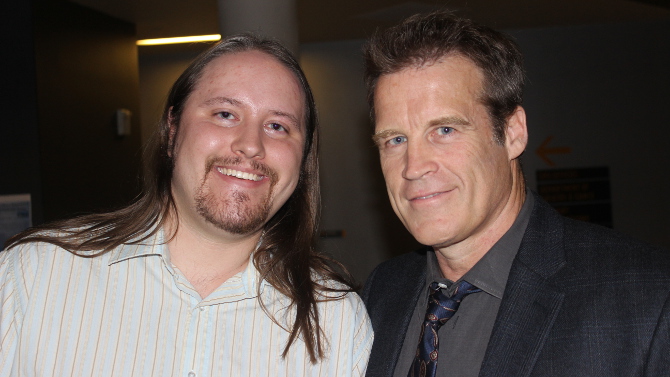 Dream WeaverLéoloMarch 21, 2017
Dream WeaverLéoloMarch 21, 2017I was fortunate enough recently to spend some time with Mark Valley. The actor has become a major player in the world of television, already having left a lasting impact in what has been termed ‘The Golden Age’ of the medium. Playing major roles on Boston Legal (Brad Chase), Human Target (Christopher Chance), Harry’s Law (Oliver Richard), Body of Proof (Tommy Sullivan), Crisis (CIA Director Widener), CSI: Crime Scene Investigation (Daniel Shaw), and so many other shows, he has developed many unique and intriguing characters over his twenty plus years in the business. If I had to choose one performance that exemplifies his craft, it would be his turn as John Scott in the science fiction drama Fringe – though he only appeared in twelve episodes (in a series that lasted five seasons), his character left a lasting impact that was felt long after his arc was over. Valley is currently working on a new series titled Famous in Love, which premieres next month. Valley has also dabbled in film, most notably in features like The Siege, Stolen, Zero Dark Thirty, Live by Night, as well as voicing The Cyclops in Shrek the Third. A proud Northern New Yorker (born in Ogdensburg), Valley has played an integral part in starting the St. Lawrence International Film Festival, set on both the American (Potsdam and Canton) and Canadian (Ottawa and Brockville) sides of the border. Having a place on the advisory board, the festival is currently expanding online, highlighting short films which deserve kudos each month.
-
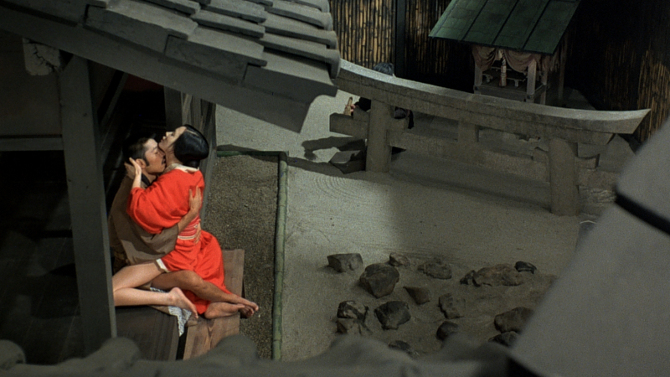
Sexual Sense and Sensibility
In the Realm of the SensesMarch 19, 2017In the Realm of the Senses has been called eroticism, a sharp political statement, an arthouse film, pornography, as well as a searing drama, and, it is likely that it has been defined as being so many other things as well. Like most boundary pushing pieces of art, it transcends the ability to label it as just one of these descriptive terms, combining all of them to create a unique and ever controversial piece of cinema. Released in 1976, it was only able to be made in the first place thanks to it being a Japanese/French co-production (listed as a French enterprise) – the unfinished film had to be shipped out of Japan and into France to avoid issues with strict Japanese censorship laws (it was processed and edited in Europe because of it). Banned in most countries upon first release (with many only lifting it completely in the 1990s and 2000s) – though it showed at numerous film festivals (the Cannes Film Festival had to orchestrate thirteen screenings due to demand), In the Realm of the Senses is still censored in Japan to this day.
-
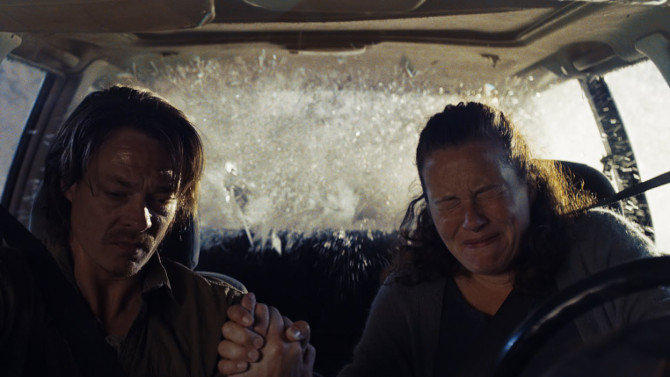
Ride Out the Wave
The WaveMarch 14, 2017Disaster movies live and die by their clichés. What brings people into the seats are the doom-laden spectacles, though it is precisely these over-the-top depictions that often overshadow the human element that is oh-so-important in every one of these genre pictures. It is a tightrope to walk, with features from the past decade or so like The Day After Tomorrow, 2012 and Pompeii wholly missing the point. A more realistic film that still delivers an intense natural disaster, but is rooted in the family that it portrays, is the 2015 Norwegian movie The Wave. Instead of ‘go big or go home’, writers John Kåre Raake and Harald Rosenløw-Eeg, along with director Roar Uthaug (who has been given the reigns of the Tomb Raider reboot starring Alicia Vikander) decide to take a more focussed, local, ‘home’ driven perspective, setting their story in a picturesque, almost otherworldly little fjord nestled in the heart of Norway. A small, tightknit community lives in the impressive locale; it takes in nearly as many tourists as the amount of villagers living there.

